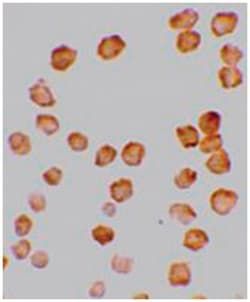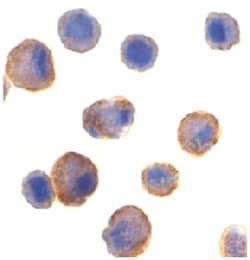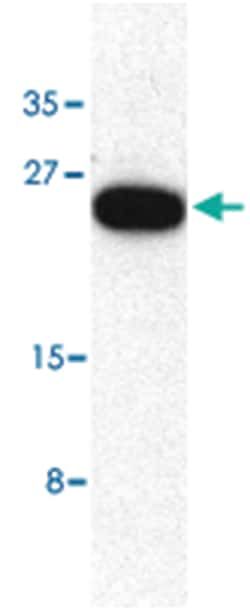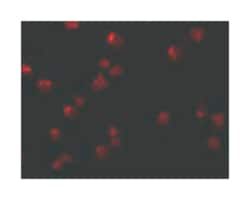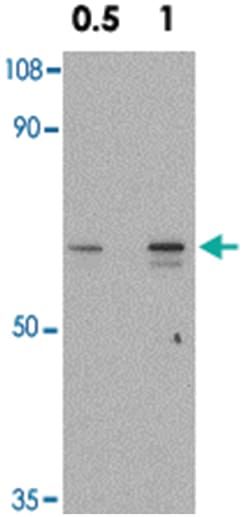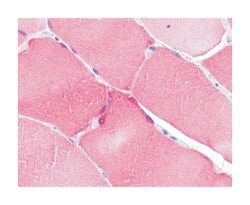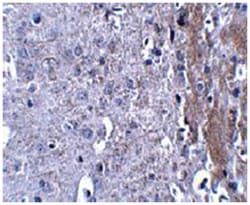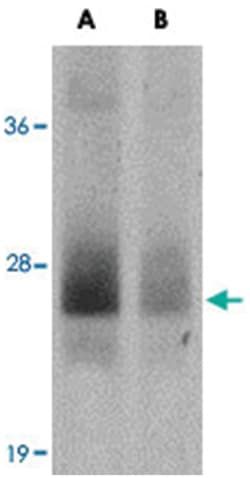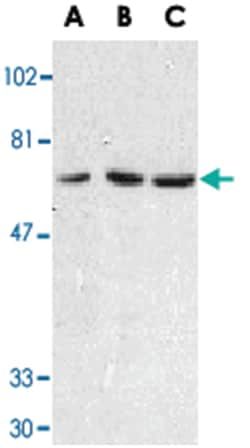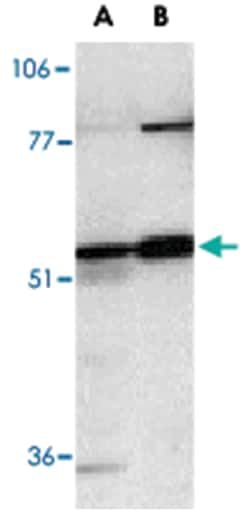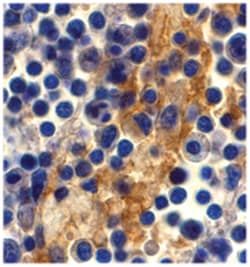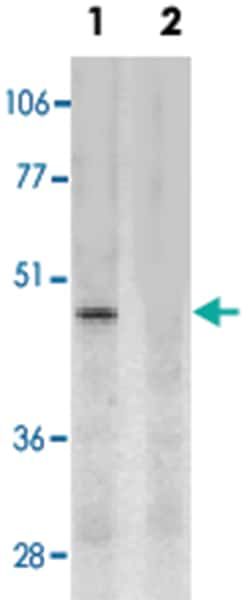TNFRSF10C Rabbit anti-Human, Mouse, Rat, Polyclonal Antibody, Abnova™
Manufacturer: Abnova Corporation
Select a Size
| Pack Size | SKU | Availability | Price |
|---|---|---|---|
| Each of 1 | 89-116-337-Each-of-1 | In Stock | ₹ 76,718.00 |
89-116-337 - Each of 1
In Stock
Quantity
1
Base Price: ₹ 76,718.00
GST (18%): ₹ 13,809.24
Total Price: ₹ 90,527.24
Antigen
TNFRSF10C
Classification
Polyclonal
Description
Rabbit polyclonal antibody raised against synthetic peptide of TNFRSF10C.
Formulation
In PBS (0.02% sodium azide)
Gene Alias
CD263/DCR1/LIT/MGC149501/MGC149502/TRAILR3/TRID
Host Species
Rabbit
Quantity
100 μg
Primary or Secondary
Primary
Test Specificity
An approximate 65 KDa band can be detected.
Content And Storage
Store at 4°C for three months. For long term storage store at -20°C.Aliquot to avoid repeated freezing and thawing.
Applications
Immunofluorescence, Western Blot
Conjugate
Unconjugated
Dilution
Western Blot (0.5-1 ug/mL) The optimal working dilution should be determined by the end user.
Gene
TNFRSF10C
Gene Symbols
TNFRSF10C
Immunogen
A synthetic peptide corresponding to the extracellular domain of human TNFRSF10C.
Regulatory Status
RUO
Gene ID (Entrez)
8794
Target Species
Human, Mouse, Rat
Form
Liquid
Description
- The protein encoded by this gene is a member of the TNF-receptor superfamily
- This receptor contains an extracellular TRAIL-binding domain and a transmembrane domain, but no cytoplasmic death domain
- This receptor is not capable of inducing apoptosis, and is thought to function as an antagonistic receptor that protects cells from TRAIL-induced apoptosis
- This gene was found to be a p53-regulated DNA damage-inducible gene
- The expression of this gene was detected in many normal tissues but not in most cancer cell lines, which may explain the specific sensitivity of cancer cells to the apoptosis-inducing activity of TRAIL
- [provided by RefSeq
